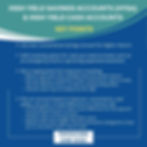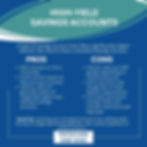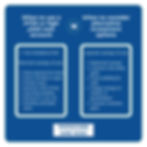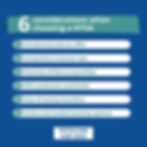High Yield Savings Accounts (HYSA) and High Yield Cash Accounts for Physicians: Best Uses and Options
- Jun 21, 2024
- 13 min read
Updated: Feb 3
We frequently see physicians on our online physician communities asking what the best high yield savings account (HYSA) is, or members responding to people’s questions about where they should invest their money by telling them to put the money into a high yield savings account. While we love these accounts, it’s important to understand their role in your financial plan and the pros and cons of using a HYSA as an investment vehicle. Remember that you do pay taxes on the earnings from a HYSA or similar high yield cash account, and that even with the amazing interest rates that we’ve seen recently in even the best HYSA, the returns that you get in a HYSA are less than the average historical returns in the market over time. Below, we’ll cover appropriate uses of a high yield savings account, what the features of the best HYSAs are, alternatives to HYSAs, and more.
Disclaimer/Disclosure: This page contains information about our sponsors and/or affiliate links, which support us monetarily at no cost to you, and often provide you with perks, so we hope it's win-win. These should be viewed as introductions rather than formal recommendations. Our content is for generalized educational purposes. While we try to ensure it is accurate and updated, we cannot guarantee it. Rules/laws can change frequently. We are not formal financial, legal, or tax professionals and do not provide individualized advice specific to your situation. You should consult these as appropriate and/or do your own due diligence before making decisions based on this page. To learn more, visit our disclaimers and disclosures.

Article Navigation
Why have high yield savings accounts (HYSA) and high yield cash accounts become so popular lately?
What are high yield cash accounts, or cash management accounts?
What are the advantages to using a HYSA or high yield cash account?
What are the disadvantages to using a HYSA or high yield cash account?
What are good examples of when you should use a HYSA or high yield cash account?
What is the best HYSA or high yield cash account option for physicians?
Looking to open an account? Jump ahead to the best HYSA or high yield cash account section.
Why have high yield savings accounts (HYSA) and high yield cash accounts become so popular lately?
While recent rises in interest rates in 2023 and 2024 may have caused you distress if you had to borrow money, take out a mortgage, or are a real estate investor, there have been some upsides to those who aren’t borrowers. If you are someone that tends to keep a lot of cash on hand or is saving up for a big expense, you may have been pleasantly surprised to find that the money that was not yielding any substantial returns now has the ability to produce a steady cash flow from interest. Instead of the often <1% returns people have been getting in bank accounts over the past decade, there are now several options to make a higher yield on short term (and relatively safe) short term investment options. Amongst these, the HYSA and high yield cash accounts are popular options.
What are high yield savings accounts (HYSA)?
The high-yield savings account (HYSA) is a type of savings account that offers significantly higher interest rate returns than a standard savings account. In 2024, we have seen many of these accounts yielding between 4 to 5.5%. On the whole, these are a great option for cash reserves you don’t need to dip into often.
Dip into often is key here, as many HYSAs come with restrictions, such as transaction limits on the number of transactions a month or a maximum amount you can deposit and/or withdraw daily, weekly, and monthly. The government used to restrict HYSAs to a limit of 6 “convenient transactions'' monthly through a rule called Regulation D. The intention was primarily to make sure that banks always had enough cash on hand to cover customer withdrawals. During the COVID-19 pandemic, they changed the rule requiring banks to enforce these limits. As of summer of 2024, they have yet to reinstate it, but many banks still hold by this limit and charge penalties if you want to frequently move money out of your HYSA, so you need to check what the policies are for withdrawals for any HYSA you are considering. Also note that many HYSAs don’t typically offer check writing options.
High yield savings accounts are typically FDIC insured up to account limits of $250,000 for each depositor on the account (as of 2024). So if you have a joint HYSA with your spouse, you would have coverage up to $500,000. This isn’t always the case, however, so you want to make sure you check that the banking institution offering it is FDIC insured.
The interest earned in your HYSA is taxable as ordinary income taxed at your marginal tax rate. Though the taxes can eat into the interest you earn, if you will have the cash sitting in savings regardless, it’s far better to make 4% and pay taxes than make 0.004% and pay the same 35%-37% tax rate on less.
What are high yield cash accounts, or cash management accounts?
A high yield cash account (sometimes referred to as a cash management account) is a cash account that is offered by a non-banking financial institution that also provides significantly higher interest rates than a standard savings account. They have similar account structures to savings accounts offered by banking institutions, although they can have different transaction and transfer rules and restrictions.
The non-banking institution does not directly provide FDIC insurance, but can partner with FDIC insured banks. Through this, you may be able to get higher FDIC coverage than when having a single account directly with a banking institution (be sure to check before signing up). Since they are not governed by the FDIC, they can also offer more flexibility with transaction limits and can even offer check writing options, but again, check the exact terms before opening an account.
Interest earned in a cash management account is also taxed as ordinary income at your marginal tax rate.
PSG Perk: Wealthfront High-Yield Cash Account
High-yield cash account with 3.30% Annual Percentage Yield (APY)
No minimum or maximum balance restrictions on APY
Zero account fees
Unlimited transfers & free same-day withdrawals to eligible accounts
Up to $8M FDIC insurance through program banks (up to $16M for joint accounts)
Through our affiliate link, new Cash Account customers get an extra 0.75% boost on the base 3.30% APY for 3 months on up to $150,000, meaning you can get 4.05% total variable APY.
*Promo terms and conditions apply. If you are eligible for the overall boosted rate of 4.05% offered in connection with this promo, your boosted rate is also subject to change if the base rate decreases during the three-month promotional period. Cash Account offered by Wealthfront Brokerage LLC, member FINRA/SIPC, and is not a bank. Base APY on deposits as of 1/30/2026, is representative, subject to change, and requires no minimum. Funds are swept to program banks where they earn the variable base APY and are eligible for FDIC insurance on deposits up to applicable limits. Conditions apply.

What are the advantages to using a HYSA or high yield cash account?
If you have a need for cash reserves, a high yield savings account or high yield cash account can be a great option to earn money on your cash in a safe way.
Earning potential. Let’s use an emergency fund as an example. If you have an emergency fund of $60,000, with a HYSA or high yield cash account paying around 5% annually, you would get around 0.4% a month, which can be closer to (or more than!) what a traditional savings account pays for an entire year.
That $60,000 could earn you around $250 the first month. If you leave the interest in your high yield account, you would then earn interest on the total account balance including that interest the following month. Over time, the amount of interest you earn compounds and grows. A free $250+ a month is one of the best passive income opportunities you can have for money that would otherwise earn you minimal returns in a normal savings account.
Liquidity. While these accounts typically have transaction limits, your cash reserves remain liquid in a high yield savings account or high yield cash account, making them much easier to access than other options for your cash such as certificates of deposit (CDs).
Safe Option with FDIC Insurance. Since HYSAs and high yield cash accounts typically offer some form of FDIC insurance through the bank or partnered banking institutions, you know your emergency fund or other cash reserves are protected. Since cash is typically kept on hand for peace of mind, you want to make sure you aren’t at risk of losing your money, which can happen in other investing options like the stock market or corporate bonds.
What are the disadvantages to using a HYSA or high yield cash account?
Interest rates can change. While interest rates for high yield savings accounts and high yield cash accounts are currently around 4%-5.5% as of summer of 2024, this hasn’t always been the case. Interest rates can shift greatly depending on market pressures. Changes to the Federal Reserve’s interest rate can influence how banks and other institutions loan and borrow money, which alter the interest rate they’re willing to offer on their accounts. If interest rates drop, these accounts may become less attractive, though they will still outperform checking and regular savings accounts and should remain options to consider for your most liquid cash reserves.
Interest earned in your HYSA is taxable. The IRS treats this interest income as ordinary income taxed at your marginal tax rate. This is why it is difficult to directly compare returns from an HYSA to returns you may make in a more tax-efficient account, such as a retirement account. If you are a physician with a marginal tax rate of 35%, you will see your effective return in an HYSA reduced by about a third. So if your HYSA or high yield cash account is paying an interest rate of ~5% annually, your net proceeds after taxes could be closer to around 3-3.5%. Again, this is still better than zero interest earned at a checking account or less than 1% with a regular savings account, but it isn’t a good option for doctors looking to build wealth.
Potential transaction limits. A HYSA can also come with minimum balance requirements or charge fees, especially if you exceed transaction limits.
Limits on FDIC protection. While HYSAs and high yield cash accounts both offer some form of FDIC protection, there are limits that you should be aware of, particularly on HYSAs. Know these limits and keep them in mind if the intention is to use them for long term or large savings, and consider spreading them across multiple accounts if necessary.

What are good examples of when you should use a HYSA or high yield cash account?
HYSAs and high yield cash accounts are great account options for short-term savings for up to around 3-5 years.
The notable exception to this rule is your emergency fund, which you will want to have on hold indefinitely. These types of accounts are great options for your emergency fund, as they will let your cash reserves do better than in a standard checking or savings account. If your interest rate helps keep up with inflation, you don’t have to worry about increasing your emergency fund as the cost of living increases, as the interest will be doing that for you.
Learn more about emergency funds for physicians.
Short-term savings goals that a HYSA or high yield cash account can be useful for include saving for:
A house down payment
A home remodel or major repair, like a pool or a roof replacement
A practice buyin
Starting a new business
A wedding
A car purchase
Other major expenses you’re going to have in the next year or so

What are examples of when you should consider alternative investments rather than using a HYSA or high yield cash account?
A HYSA or high yield cash account can be a great option for short-term savings.
However, even at the highest levels we’ve seen in recent years, the currently offered interest rates in 2024 can’t compete with average historical returns in the stock market. Add the additional effect of paying taxes on the interest income earned, and the effective return dwindles to a point where you may not even keep up with inflation in a high inflation environment. So while these types of accounts are great for cash you need on hand as you are saving up for large expenses and are preferred to keeping money in a regular savings account, they are not a good vehicle for investing and long term growth in your net worth.
In the example above, we showed a 5% interest rate over the year can become closer to 3%-3.5% after taxes for high-income earners like doctors. A 5% annual interest rate can keep up with the average inflation rate of 3.3% over the past decade, but that assumes that HYSA and high yield cash accounts remain constant at 5%, which may not be likely. The stock market, on the other hand, has averaged closer to 8-10% in annual returns over the last century.
This is why stock market returns, especially in tax-advantaged retirement accounts, are a better long-term investing strategy for growing your net worth. With tax-advantaged retirement accounts like 401(k)s, 403(b)s, traditional and Roth IRAs, and HSAs, you can either pay less taxes up front or not have to pay taxes at all when withdrawing the fund, depending on the type of account. Growth in these accounts is also generally either tax deferred or tax free versus being taxed at your current marginal tax rate every year your interest compounds.
Note that even a regular taxable investment account is more tax advantaged than an interest producing investment like a HYSA. This is because:
You aren’t taxed on growth as you go, allowing more growth through compounding during the holding period.
Much of investment income is taxed at capital gains rates, which can be significantly lower than the ordinary income tax rate you are charged on your HYSA earnings.
Learn more about different tax rates and types of taxes.
Therefore, you should resist the urge to “make it easy” and just keep your money in a high yield savings or cash account because you think the returns aren’t that different than what you’d get if you invested elsewhere. They are. It’s still very worthwhile to learn about investing as a physician.
Learn more:
How do you choose a good HYSA or high yield cash account?
There are numerous options for HYSAs and high yield cash accounts available. We often see questions in our physician Facebook groups asking for recommendations. There are a few different factors to consider when finding which account is a good fit.
The interest rate available
You want to make sure you find an account offering a competitive interest rate in the current market. That being said, as interest rates change, many doctors consider opening accounts with new banks offering better introductory rates to new customers.
While an introductory rate can be a nice perk, note that many of these introductory rates only last a few months. Recall our example above of the $60,000 emergency fund. Let’s say there is a 0.5% interest rate incentive for new customers for three months. On a $60,000 balance would only equal $25 a month, or $75 for the three months. Similarly, switching accounts to get an extra 0.2% annually for your $60,000 emergency fund would only yield $120 for the year. Also remember that these additional amounts will then be taxed at your ordinary income rates, taking them down another 30-50% for many physicians.
Consider whether these returns are worth the time and effort to make a switch or give up account features that you love in a competing account that offers a slightly lower interest rate. Chasing marginal differences in interest rates to earn an extra hundred bucks over a year likely isn’t worth the time, effort, or hassle physicians will invest in opening and closing accounts and moving funds around, especially for the amount of money you’ll likely have for your short-term savings goals.
Also, again note that interest rates will fluctuate across all institutions as economic conditions change. So long as your account doesn’t change drastically compared to others, it’s worth picking a good high-yield option and leaving your funds there until needed.
Fees and penalties
Not all HYSAs and high yield cash accounts charge the same fees and penalties. A good fit for you will be where you can avoid paying any fees or penalties for what you will use the account for.
Account features and restrictions
Similarly, if you are saving up for a large remodel and know you will be making multiple payments and transfers to different contractors, a high yield cash account with check writing availability and a higher number of monthly transactions allowed will likely be a better fit than a high-yield savings account with low transfer limits on quick ACHs to your checking account to pay bills and deposits as they come in. Assess the different account features, and restrictions, and compare them to what you plan to use the account for.
Assessing options with institutions you already have can make it easier to deposit and withdraw funds between your accounts. That added convenience can be worth exploring your current institution’s options if you will be making several transfers.
Different accounts also offer different online and mobile banking options. If you plan on making regular transfers, select an account that makes it easy to move money.
FDIC protection
Before selecting an account, make sure it is either FDIC insured or offers FDIC protection through partnered banks. You don’t want your savings to disappear with a sudden closing of a bank that isn’t protected.

What is the best HYSA or high yield cash account option for physicians?
As noted above, there’s not necessarily a one-size-fits all best solution for everyone. The best option for you is the one that’s most convenient while providing the features noted above.
That said, one option we've partnered with that's popular on our communities is:
Wealthfront High-Yield Cash Account
High-yield cash account with 3.30% Annual Percentage Yield (APY)
No minimum or maximum balance restrictions on APY
Zero account fees
Unlimited transfers & free same-day withdrawals to eligible accounts
Up to $8M FDIC insurance through program banks (up to $16M for joint accounts)
Through our affiliate link, new Cash Account customers get an extra 0.75% boost on the base 3.30% APY for 3 months on up to $150,000, meaning you can get 4.05% total variable APY.
*Promo terms and conditions apply. If you are eligible for the overall boosted rate of 4.05% offered in connection with this promo, your boosted rate is also subject to change if the base rate decreases during the three-month promotional period. Cash Account offered by Wealthfront Brokerage LLC, member FINRA/SIPC, and is not a bank. Base APY on deposits as of 1/30/2026, is representative, subject to change, and requires no minimum. Funds are swept to program banks where they earn the variable base APY and are eligible for FDIC insurance on deposits up to applicable limits. Conditions apply.
What are alternative options for short term investments?
High yield savings accounts and high yield cash accounts are a great option for short term savings, but they aren’t the only options for short-term investments. Other short term investments to consider include:
Certificates of deposit (CDs)
Corporate bond funds
Money market accounts
Money market funds
Municipal bonds
Treasury bills
Learn more about each of these on our short-term investment options page.
Conclusion
Both high yield savings accounts and high yield cash accounts can be great options for short-term savings goals and your emergency fund. With FDIC insurance or protection through partnered banks, they offer security while providing a much better interest rate versus traditional checking and savings accounts, helping you maintain your purchasing power against inflation until you’re ready to spend your money.
While both offer high liquidity of your cash, different accounts can have different restrictions and limitations. The best account for you will be the one that offers standard features and provides you with ease of use.



